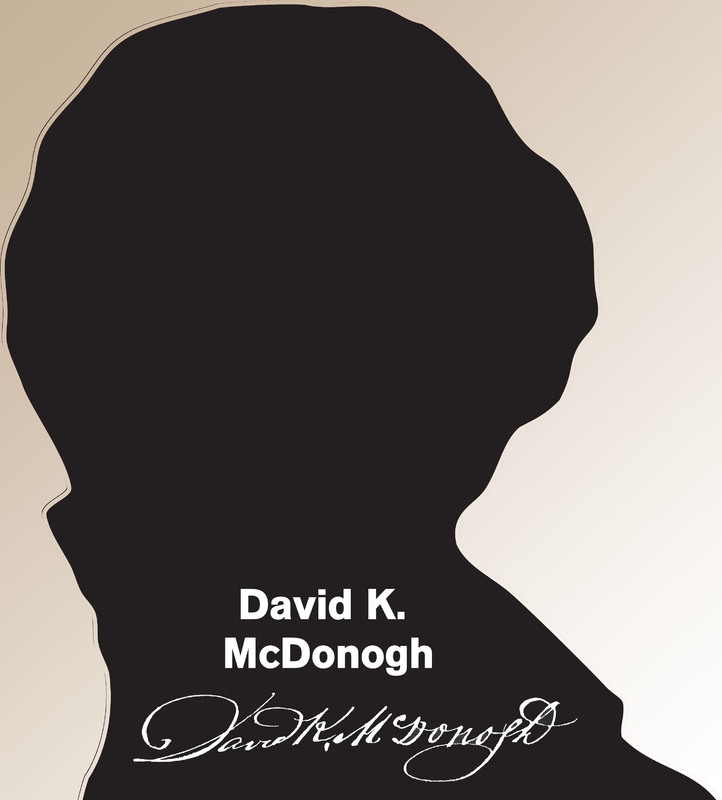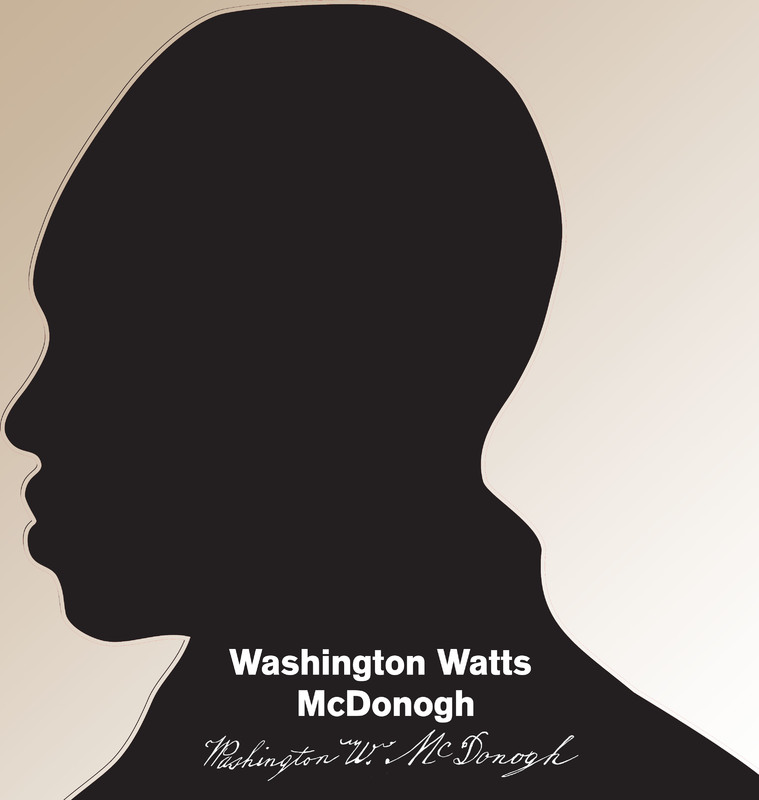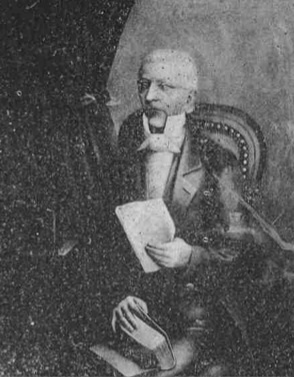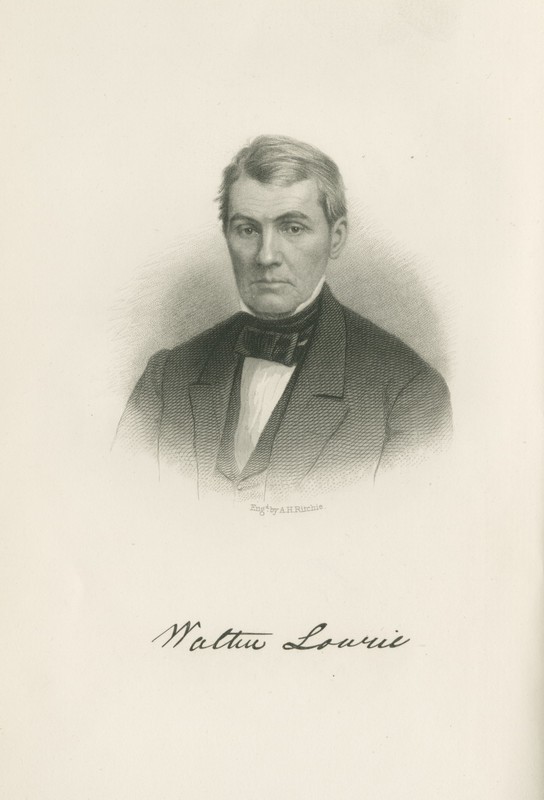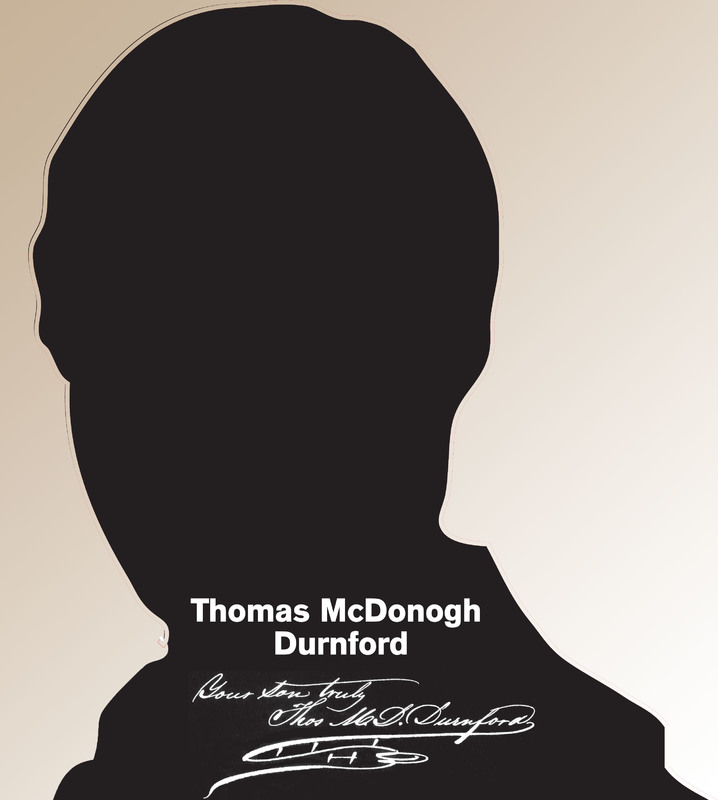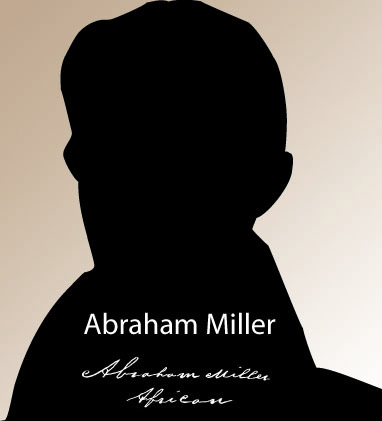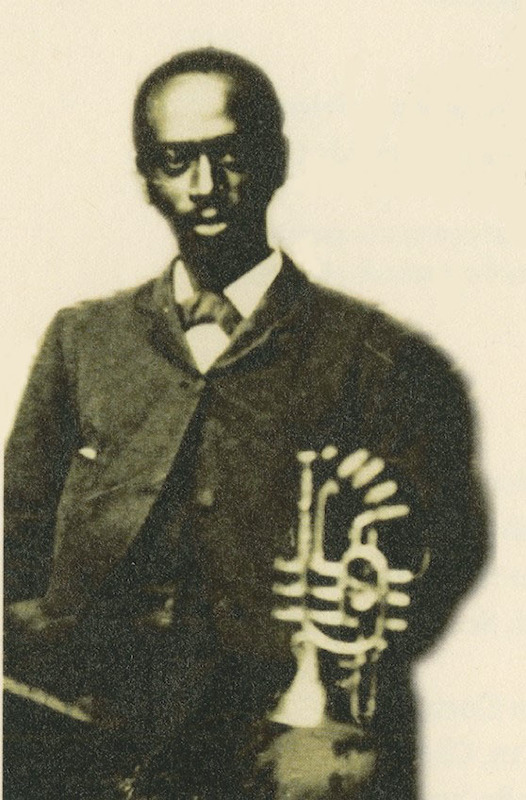Central Figures
David Kinney McDonogh was selected as one of two slaves to be sent to Lafayette College by his slave master, John McDonogh. David was a confident and complex individual. He balanced the roles of adherent slave and opportunistic individual. He moved between the two positions like a strategic ambassador playing on the strengths of both sides in order to arrive at his desired outcome.
Walter Lowrie, a Pennsylvania State Senator, was charged with David’s emancipation by John McDonogh, due to laws restricting slavery in Pennsylvania. David seized his newly presented freedom with subtle actions until the time came for him to act in May of 1842. David, as well as Washington Watts McDonogh and other McDonogh slaves, was to board the Mariposa and set sail for Liberia, but David had no desire for this to happen, so instead he stood his ground and remained in the United States. His good academic performance allowed him to enter the world of medicine. David took his freedom, and set out to live the life he wanted.
During his time on John McDonogh’s plantation, Washington Watts McDonogh emerged as a candidate for missionary work in Liberia. While he attended Lafayette College alongside David K. McDonogh, Washington struggled academically, but he persevered in his studies. In the eyes of John McDonogh, his potential as a missionary was unaffected by his performance at Lafayette College, what mattered was his humble demeanor and devotion to religion. Missionary work, particularly to Africa, was very active at that time, and fueled a certain global social climate. Washington was an American slave who fully believed its vilest mental teachings. As an eventual missionary, Washington represented the “civilized” coming in to convert and tame the “savage” Africans. When he finally reached Liberia, he was seemingly enamored with the prospect of it, but then seemed to lose his attraction once he became settled.
John McDonogh was a paternalistic southern slave master turned emancipator, disguised as a philanthropist. Although John defied Louisiana state law by educating his slaves, he primarily only offered that support if the slaves agreed to work towards immigrating to Liberia. He did not believe that Blacks and Whites could ever peacefully cohabitate in the United States of America. The establishment of the American Colonization Society presented McDonogh with a perfect platform to follow the national trend of exporting slaves. John immediately devised a plan to have his slaves earn their freedom, which was rigged with a clause of deportation. The success of his scheme allowed him to purchase more slaves, replacing the slaves that had obtained their freedom with their money. He singled out two slaves in particular to send to Lafayette College in preparation for becoming future leaders in Liberia: David Kinney and Washington Watts. John’s relationship with David soured quickly, as David’s determination to stay in America created an irreparable rift between the two. On the other hand, Washington, who was indoctrinated to accept the system of slavery, retained an affectionate relationship with his slave master during his time at Lafayette College, and afterwards in Liberia.
Walter Lowrie served as a Pennsylvania state senator, and as chairman of the finance committee. Walter was given responsibility of David Kinney McDonogh and Washington Watts McDonogh by John McDonogh due to the strict slave emancipation laws in Louisiana that ultimately frustrated John. Walter Lowrie leveraged a legal loophole to take the two boys in, and also to emancipate them immediately. This came as a surprise to John McDonogh, who was expecting Lowrie to emancipate the young men upon graduation. This issue would later resurface as a conflict once he discovered David would not emigrate to Liberia. These actions exhibit Lowrie's character, displaying him as a man that mediated disagreements and advanced initiatives on both ends. There is no doubt that a person of Lowrie’s character was massively influential in assisting the men on their journeys. His facilitatory position in the relationship of the three major McDonogh’s in our scope exposes him as someone who had the capability to subtly manipulate a situation through a series of minor changes in language in order to protect personal interests. For example, when the people involved became aware of Washington’s limitations in the academic setting, Lowrie made a slight shift to further encourage David’s academics, while accelerating Washington’s missionary move to Liberia.
In 1840, another New Orleans student with connections to McDonogh matriculated at Lafayette College. Thomas McDonogh Durnford was the godson of John McDonogh, but unlike David and Washington McDonogh, he was free. The son of Andrew Durnford, a free mixed-race planter and close associate of John McDonogh, and Charlotte Remy, a free Black woman, Thomas Durnford was Lafayette College’s second Black graduate, receiving his degree in 1846. While at Lafayette College, he was treated differently from David and Washington. Durnford was allowed to live in the same building as the other students, and he was a speaker at his commencement. After graduation, Durnford pursued medical studies in New York City, and established a medical practice in New Orleans, while also maintaining a part-time residence in Paris. He was a proponent of colonization, believing that American slaves should be freed and sent to Africa, the land of “their” fathers.
An African prince, Abraham Miller, studied at Presbyterian Green Mission School near Bassa Cove in Liberia until it closed in about 1839. In the previous year, he was made king of a small tribe of the Bassa people. He accompanied missionaries back to the United States, and enrolled at Lafayette College from the summer of 1840 until February, 1841. He then returned to Liberia with several Presbyterian missionaries, destined for Settra Kroo, and prepared to serve the Kroo (Krumen) people. As reported in the 1841 Fourth Annual Report of the Board of Foreign Missions:
Abraham Miller, the native African Prince, after being ten months at school in the country returned with the brethren. He will still continue his studies with them, and from his intelligence, hopeful piety, and unabated desire of improvement, he promises to be greatly useful to his people.
Aaron Odgen Hoff, a free Black man, was a member of the first class of students at Lafayette College. A native of Warren County, New Jersey, Hoff was born in 1808. In 1831, he enrolled at the Pennsylvania Manual Labor Academy in Germantown, Pennsylvania, which moved to Easton, Pennsylvania the following year to form Lafayette College. One of his duties in the early manual labor years was blowing a horn to mark the rising and recitation hours for the students. Years later at the semi-centennial celebration in 1882, he played “Auld Lang Syne” with this same horn for the assembled community. Hoff worked for Lafayette College president George Junkin, and other Easton residents in a variety of jobs. He attended both the Presbyterian and Lutheran Churches in Easton, and was instrumental in the founding of the Colored Lutheran Church. When he died in 1902, his obituary noted that he was “one of the ablest and best known colored men in this part of Pennsylvania.” In 2002, Lafayette College students commissioned a formal marker for Aaron Hoff’s grave in the Easton Cemetery.

